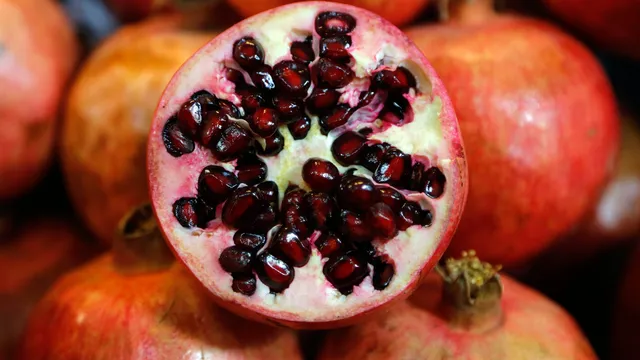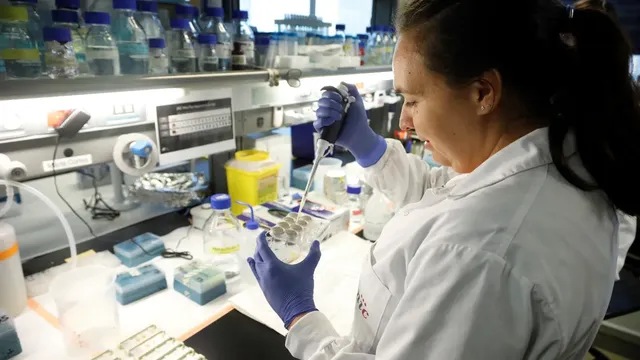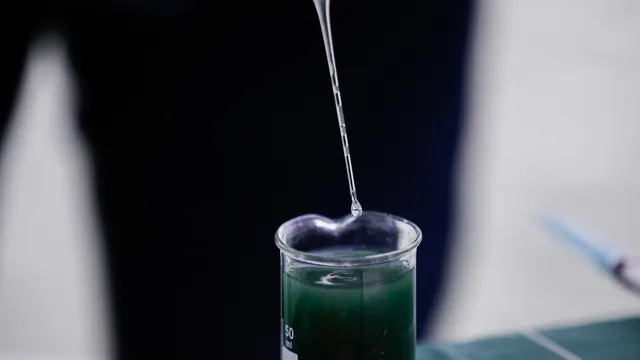If you enjoy exercising regularly, it's hard to avoid sports supplements. Even if you're not interested in them, there's a good chance your gym has posters extolling their virtues, or your athletic friends want to talk to you about them.
It can be difficult to know which supplements to take, as there is a lot of conflicting information available. L-carnitine is one of the most controversial supplements. Although there is evidence that it aids muscle recovery and improves exercise performance, research suggests that it may also contribute to cardiovascular disease.
In a new study, Julia Haarhuis, PhD student in Food, Microbiome, and Health at the Quadram Institute, and her colleagues found that it may be possible to counteract the negative effects of L-carnitine by consuming pomegranate with it.
First, it is important to understand what L-carnitine is. Your body produces small amounts of L-carnitine naturally. This occurs in the kidneys, liver, and brain.
When L-carnitine was first identified in humans in 1952, it was considered a vitamin and was called vitamin BT. After many years of research on this compound, L-carnitine is now considered a quasi-vitamin, as most people's bodies can produce enough L-carnitine on their own.
L-carnitine can be purchased as a dietary supplement, but manufacturers also add this nutrient to energy drinks and some protein powders to try to increase the value of their products. Manufacturers usually clearly indicate on the product whether it contains L-carnitine. This is not something that companies try to hide.
Some foods naturally contain L-carnitine, such as meat and, in small amounts, dairy products. L-carnitine is not fed to farm animals, but it is present in muscle tissue. L-carnitine was first discovered in meat in 1905. This is why the name carnitine comes from the Latin word carnis, which means “from meat.”
Harmful effects of L-carnitine supplements
It is not considered harmful in itself. Your gut microbes are responsible for the risks associated with L-carnitine.
Less than 20% of L-carnitine supplements can be absorbed by the human body. Unabsorbed L-carnitine moves through the gastrointestinal tract and reaches the large intestine. The large intestine is home to trillions of microbes, including bacteria, viruses, and fungi.
When the remaining 80% of the L-carnitine supplement reaches the large intestine, the microbes begin to absorb the nutrient and use it to produce something else: trimethylamine (TMA). TMA is a compound that the human body can effectively absorb, and this is where the potentially harmful effects of L-carnitine supplements arise.
Once the body absorbs TMA, it enters the liver via the bloodstream. The liver converts TMA into trimethylamine N-oxide (TMAO). Studies show that high levels of TMAO in the blood can contribute to cardiovascular disease.
For example, a research team from the Cleveland Clinic in the US gave participants a nutrient similar to L-carnitine, which is also converted to TMAO by gut microbes. The researchers found that the nutrient caused an increased risk of thrombosis (blood clot formation) in the participants.
L-carnitine itself is a beneficial nutrient. When produced by our bodies, which occurs in the kidneys, brain, and liver, it is not metabolized by the gut microbiota and does not convert to TMAO. Your body can absorb more L-carnitine from meat than from dietary supplements, making it less harmful as it means less of it ends up in the colon.
Dietary intervention may reduce harmful effects
In Haarhuis' lab at the Quadram Institute in Norwich, England, they simulated what happens when the supplement L-carnitine reaches the microbes in the large intestine. They fed a culture of gut microbes with L-carnitine and measured the TMA that the microbes produced.
They then fed a culture of gut microbes with L-carnitine along with pomegranate extract, which is rich in polyphenols. Polyphenols are plant compounds with antioxidant, antimicrobial, and anti-inflammatory properties that can help you maintain your health and protect you from disease.
The main polyphenols in pomegranates belong to a group called ellagitannins, a type of polyphenol that can reach the colon almost entirely intact, where it interacts with the gut microbiota. When they measured the TMA produced by the gut microbes in the second experiment, they saw much less TMA.
Their laboratory experiments show that polyphenol-rich pomegranate extract can reduce microbial TMA production and eliminate the potentially harmful effects of L-carnitine supplements.
They also showed that pomegranate extract can reduce TMA production. Ellagitannins are also abundant in other fruits and nuts, such as raspberries and walnuts.
So, if you take L-carnitine supplements, research suggests that it may be a good idea to include foods rich in ellagitannins in your diet. Eating more fruits and nuts can be beneficial to your health, so including them in your diet is likely to be beneficial anyway. | BGNES

 Breaking news
Breaking news
 Europe
Europe
 Bulgaria
Bulgaria







